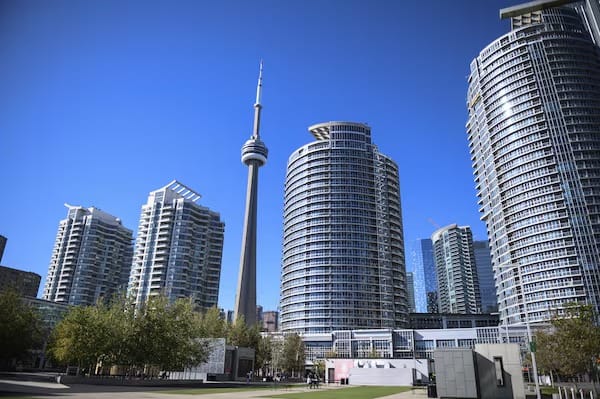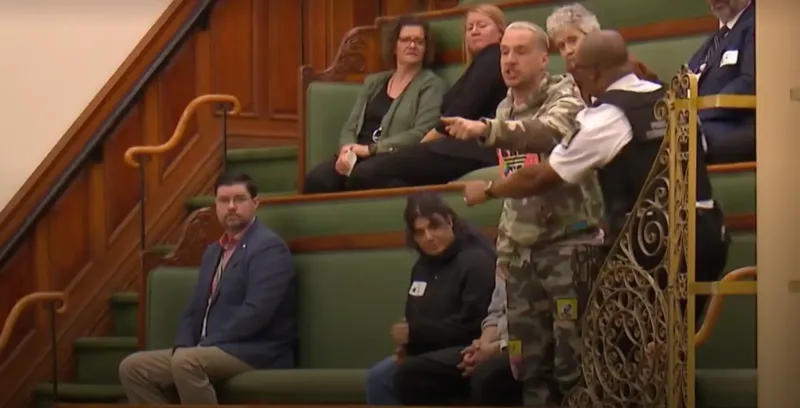High borrowing costs, record condo completions lead to oversupply in Greater Toronto
A report by TD economist Rishi Sondhi said sales activity hasn’t been absorbing supply fast enough, with July condo resales in the GTA down 25 per cent from pre-pandemic levels.

Real estate analysts in the Greater Toronto Area (GTA) say a combination of high interest rates and a surge in newly built condo units has resulted in an oversupply that will take time to stabilize.
TD economist Rishi Sondhi reported that condo sales haven't kept pace with supply, with July's condo resales in the GTA down 25% from pre-pandemic levels. Sondhi attributes this trend to factors such as an influx of newly completed condos, high borrowing costs preventing some buyers from closing on their mortgages, and investors selling properties due to declining rents and negative cash flow.
“The relatively elevated interest rate backdrop means that the gap between the rate of return from a condo in the GTA... and from a ‘risk-free’ government bond has narrowed,” Sondhi noted in a September 5 report. He added that the recent decline in yields might widen this gap again.
Sondhi's data shows around 19,000 condo completions in the region from January to July this year, compared to 12,000 during the same period in 2023 and 10,000 in 2022. This suggests that 2024 could set a new record for condo completions in the GTA, said Brendon Cowans, a sales representative with Toronto-based Property.ca.
“You can just imagine all of this supply coming in a high-interest rate environment. It’s not a lovely combination,” Cowans said.
According to Zoocasa, active condo listings across the GTA increased by 63.9% in July, rising from 5,416 to 8,879 compared to the same month last year. The City of Toronto saw a similar increase, with active listings up 61.5% year-over-year.
While the GTA leads the country in active listings growth, similar trends are occurring in other major Canadian cities. Year-over-year condo listings rose more than 40% in cities like London, Hamilton-Burlington, Mississauga, and Ottawa, as well as Vancouver. Montreal and Calgary experienced increases of around 23%.
Zoocasa pointed out that rising interest rates over the last three years have driven up the cost of holding investment properties, such as condos. Cowans explained that carrying costs for these properties, especially for those on variable rates, have soared, making it harder for owners to hold on to them.
However, the oversupply has resulted in more favorable pricing for buyers. Zoocasa reported a 2% year-over-year decline in condo prices across the GTA in July, compared to a 1% drop for townhouses and a 0.1% dip for detached homes. Condo prices in the region have also decreased by about 5% since the third quarter of last year, Sondhi noted, adding that a "gradual recovery" in sales is expected as supply and demand start to balance.
Sondhi predicts that condo resale prices may decline by mid-to-high single digits through early next year. He also pointed out risks to the near-term condo price outlook, stating, “On the downside, the wave of condos slated for completion will continue to add to supply. On the upside, condo sales could react more aggressively to falling rates... or investors could pull their properties off the market, tightening conditions faster than anticipated.”
Earlier this month, the Bank of Canada cut its key lending rate by a quarter-percentage point to 4.25%. Despite this being the third consecutive cut, Bank Governor Tiff Macklem cautioned that future reductions could slow as necessary.
Sondhi expects interest rates to remain "relatively elevated" into 2025, which could limit activity due to ongoing affordability issues. However, others are more optimistic.
Debbie Cosic, founder and CEO of In2ition Realty, believes the oversupply situation is temporary. “We’re expecting next year to be a very strong year because we believe interest rates will continue downward,” she said, advising buyers to act now to take advantage of current incentives.
Cosic believes the oversupply is partly due to buyers waiting for the market to bottom out, and she believes that point has been reached.
Cowans agrees that future interest rate cuts will play a crucial role in market recovery. With condo completions expected to slow in the coming years, he anticipates a rebound in sales over time.
“I do see things picking back up in the future. I don’t expect it to be super fast,” he said. “I can anticipate increases as more rate cuts continue to happen... and in 2027, I think it’s going to be madness. If people can hold on for the next two or three years, it’s going to be a drastically different story.”





